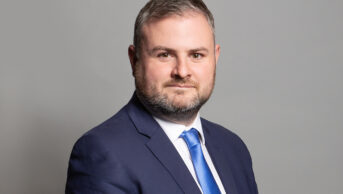
ChameleonsEye / Shutterstock
It would be hard to argue against any medical innovation that improves patient prognosis. However, a private members’ bill, which was stopped in its tracks early in 2015, has returned to UK parliament in a new guise — and could become law by summer 2016.
The Access to Medical Treatments (Innovation) Bill was brought forward by Daventry Conservative MP Chris Heaton-Harris and life sciences minister George Freeman, and is backed by the government. On 11 March 2016, the bill came closer to becoming law when it passed the committee stage in the House of Lords and it will now go to the third reading (yet to be scheduled).
If the bill is passed, a national database will be created containing details of new medicines in development and seriously ill patients will be able to volunteer for innovative treatments. Ministers who support the bill believe an abundance of patients would volunteer to try innovative treatments and drugs, thereby building the evidence base around them and reducing the time it takes to bring them to market by a third (from 15 to 10 years).
The first iteration of the bill was established when advertising mogul Lord Saatchi began campaigning for a new law (dubbed the ‘Saatchi Bill’) after his wife died from ovarian cancer in 2011. The original bill would have given doctors legal protection if they chose to use treatments outside the existing range of accepted medical treatments. The bill was criticised by the medical profession, patient organisations, research charities, legal bodies, royal colleges and medical unions because of the risk to patient safety. It was eventually vetoed by the Liberal Democrats in March 2015.
The new bill has removed the clause that would protect doctors from being sued when treatments go wrong. Instead, it will make doctors follow safeguards to protect them from potential legal action.
Supporters believe that, as modern society becomes more litigious, existing laws could act as a deterrent to medical innovation. However, organisations such as the Medical Defence Union and Cancer Research UK say there is no evidence that doctors are scared to use innovative drugs or treatments because of a fear of being sued.
There are already legal frameworks in place for establishing whether or not a doctor has been negligent when prescribing a conventional or innovative treatment. The 1957 Bolam case established that a doctor, nurse or other healthcare professional is not negligent if he or she acts in accordance with a practice accepted at the time as proper by a responsible body of medical opinion, even though some other practitioners adopt a different practice. Additionally, the Bolitho test states that a course of action, even if supported by a responsible body of medical professionals, must also be capable of withstanding logical analysis. These two legal frameworks already allow for innovative treatments for patients, while ensuring those practitioners who are negligent will be held to account legally.
Although this bill may have been borne out of good intentions, it is not designed to meet a critical need, there is no evidence that it will achieve its aims and it does not have the backing of most healthcare organisations. There may also be unintended consequences should this bill become law without careful consideration. For example, it could lead to some doctors practising recklessly, thereby inducing harm to patients. Politicians must now consult with and listen to healthcare organisations and take their views and concerns into account before proceeding.


